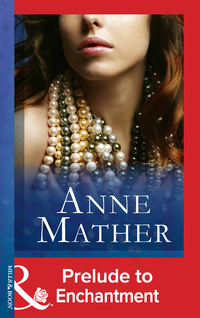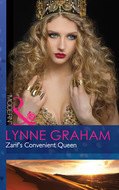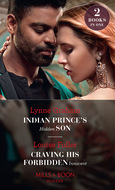Kitap dosya olarak indirilemez ancak uygulamamız üzerinden veya online olarak web sitemizden okunabilir.
Kitabı oku: «Prelude To Enchantment»

Mills & Boon is proud to present a fabulous
collection of fantastic novels by
bestselling, much loved author
ANNE MATHER
Anne has a stellar record of achievement within the
publishing industry, having written over one hundred
and sixty books, with worldwide sales of more than
forty-eight MILLION copies in multiple languages.
This amazing collection of classic stories offers a chance
for readers to recapture the pleasure Anne’s powerful,
passionate writing has given.
We are sure you will love them all!
I’ve always wanted to write—which is not to say I’ve always wanted to be a professional writer. On the contrary, for years I only wrote for my own pleasure and it wasn’t until my husband suggested sending one of my stories to a publisher that we put several publishers’ names into a hat and pulled one out. The rest, as they say, is history. And now, one hundred and sixty-two books later, I’m literally—excuse the pun— staggered by what’s happened.
I had written all through my infant and junior years and on into my teens, the stories changing from children’s adventures to torrid gypsy passions. My mother used to gather these manuscripts up from time to time, when my bedroom became too untidy, and dispose of them! In those days, I used not to finish any of the stories and Caroline, my first published novel, was the first I’d ever completed. I was newly married then and my daughter was just a baby, and it was quite a job juggling my household chores and scribbling away in exercise books every chance I got. Not very professional, as you can imagine, but that’s the way it was.
These days, I have a bit more time to devote to my work, but that first love of writing has never changed. I can’t imagine not having a current book on the typewriter—yes, it’s my husband who transcribes everything on to the computer. He’s my partner in both life and work and I depend on his good sense more than I care to admit.
We have two grown-up children, a son and a daughter, and two almost grown-up grandchildren, Abi and Ben. My e-mail address is mystic-am@msn.com and I’d be happy to hear from any of my wonderful readers.
Prelude to Enchantment
Anne Mather

MILLS & BOON
Before you start reading, why not sign up?
Thank you for downloading this Mills & Boon book. If you want to hear about exclusive discounts, special offers and competitions, sign up to our email newsletter today!
Or simply visit
Mills & Boon emails are completely free to receive and you can unsubscribe at any time via the link in any email we send you.
Table of Contents
Cover
About the Author
Title Page
CHAPTER ONE
CHAPTER TWO
CHAPTER THREE
CHAPTER FOUR
CHAPTER FIVE
CHAPTER SIX
CHAPTER SEVEN
CHAPTER EIGHT
CHAPTER NINE
CHAPTER TEN
Copyright
CHAPTER ONE
THE Palazzo Malatesta stood in all its crumbling magnificence overlooking the narrow waterway which was its main link with the rest of the city. Beyond this quiet backwater flowed the busy reaches of the Grand Canal where private and public craft alike provided an ever-changing parade of colour, and where every few yards some splendid remnant of Venice's turbulent history could be seen.
The palazzo itself retained a certain majesty that no amount of decay could entirely destroy. A patina of years had filmed its stone walls and cast a glazing of green across its gilded loggia and on the proudly raised head of the bronze griffin which guarded its entrance. Curled poles supported a stone landing stage in front of the palazzo beside which a motor launch gleamed incongruously.
To Sancha Forrest, leaning on the side of the craft in which she was travelling trailing a lazy hand in the cool water, the whole building exuded an air of timelessness that was in itself slightly unnerving. How could anyone live in such a place, following the day-to-day pursuits of twentieth-century Italy, when their surroundings so obviously belonged to the age when chivalry and violence so often walked hand in hand? In this quiet quarter of the city it was incredibly easy to visualise what the palazzo must have been like then when some noble family had filled its walls with life and vitality and put to full use its halls and apartments.
Sancha sighed and the faint sound that escaped her was sufficient to attract the attention of the young man who was lounging beside her in the stern of the motoscafo. He turned to look at her with twinkling eyes, noticing the rapt expression on her young face.
‘Well?’ he said. ‘What do you think?'
Sancha withdrew her hand from the water and rubbed it dry. ‘It's very imposing,’ she answered, allowing her gaze to move upward over the façade of the building. ‘Does Count Malatesta really live here?'
Tony Braithwaite grinned. ‘You find it hard to believe?'
‘Don't you?’ Sancha shook her head. ‘It's so big! Too big for one man, surely.'
Tony shrugged. ‘I expect one day the Count hopes to share the place with a wife and family of his own. Until then …'
Sancha wrinkled her nose. ‘He's not married?'
‘No. Not yet.'
‘Then how old is he?'
‘I'm not sure. Late thirties—early forties perhaps.'
‘I see.’ Sancha fingered the notebook in her hand. ‘Not young, then. Why hasn't he married before?'
Tony raised his eyebrows. ‘Now hold on, Sancha! These are the sort of questions you should wait and ask him. After all, that's your assignment. Mine is simply to take photographs.’ And as if to demonstrate this ability, Tony unfastened the protective shield over his camera, and standing up endeavoured to get a picture of the palazzo as the boatman brought their craft into the palazzo's landing stage.
Sancha got to her feet also as Tony examined his light meter, unable to suppress the tremor of anticipation that ran through her body. Now that they were actually here, alighting at the Palazzo Malatesta, all her earlier confidence fled away. This was her first real assignment and she only had this because Eleanor Fabrioli was ill and unable to take it herself.
She stumbled as she stepped on to the landing stage and Tony saved her from falling on the roughened stone surface and possibly laddering her tights. Her cheeks were flushed and her heart palpitated wildly, and Tony regarded her with amused tolerance.
‘For heaven's sake, Sancha, don't look so nervous! This is your big chance! Don't louse it up!'
Sancha nodded and straightened her skirt, smoothing the soft material over her hips. As she did so, she wondered whether Italian counts objected to the way modern girls wore such figure-revealing clothes. Maybe she should have put up her hair, she thought desperately. Tumbling about her shoulders in Scandinavian fair disorder, it made her look years younger than the twenty-two years she actually was. What would the Count be like? Would he be big and imposing, or small and dark and oily, like so many of the youths she had had to encounter during her six months in Venice? Not that he was any youth, of course. She hoped, too, that he would not be effeminate or effusive. Authors sometimes were; but he wasn't the first man to write an historical novel, and even if that novel had been acclaimed as a major investigation into life in thirteenth-, fourteenth- and fifteenth-century Italy that didn't mean it was going to become a best-seller anywhere else than here. On the contrary, Sancha had found it rather difficult to read, but maybe that was because she had only been given the book at lunchtime the previous day with this assignment in mind and she had sat up half the night, almost propping open her eyelids with matchsticks, in an effort to understand it. But at two and three in the morning, the merits of Dante's Divine Comedy, written as it was at a time when he was fleeing from his political enemies, had gone over her head. In consequence this morning she wondered whether she had absorbed enough of the book to discuss it intelligently with its author.
Tony intimated to the boatman that they wanted him to wait and then put a hand to Sancha's elbow.
‘Well, honey, this is it,’ he remarked mockingly. ‘Are you ready? Are your pencils sharpened? Is your brain functioning as it should be?'
Sancha gave him a pained glance. ‘Oh, stop it, Tony,’ she exclaimed. ‘I'm nervous enough as it is, without you making a joke of it all.'
‘But there's nothing to be nervous about!’ replied her companion, as they passed under the arched entrance to a courtyard about which the walls of the palazzo stood in grim silence. Moss and weeds had invaded this courtyard where once mosaic tiling had shone with polished magnificence. A faint odour of decay was about them, and Sancha shivered.
‘How does one address a count?’ she asked suddenly, the thought invading her head with sharp insistence.
Tony shrugged. ‘Well, you can hardly address him by his full title every time you speak to him. I should imagine Count would do—or just signore, perhaps.'
Sancha looked at him. ‘You're so casual, aren't you? Doesn't it bother you that this man is the last in a long line of aristocrats?'
Tony's expression was cynical. ‘Oh, honey, don't kid yourself. This aristocrat wouldn't give us the time of day if he didn't have to! Look at this place! Does this look like the home of an aristocratic gentleman? It's falling apart!'
Sancha looked about her reluctantly. ‘Oh, not that, Tony,’ she exclaimed. ‘It needs money spent on it, I agree, but it's still very impressive.'
Tony shrugged. ‘You're a romantic, Sancha!’ he said, with some regret. ‘I just hope that romantic soul of yours isn't torn apart by the savagery of realism.'
Sancha tugged at a strand of silvery hair. ‘You sound bitter, Tony.'
Tony raised his eyebrows. ‘And why not? I was like you once, many moons ago.'
‘You're not that old!’ she protested.
‘I can give you half a dozen years,’ commented Tony lightly. ‘And a few months is enough to destroy a dream.'
Sancha sighed, unwillingly aware that the shadow of the palazzo had in some way invaded their conversation almost without them being aware of it. Maybe a little of the violent past remained in this silent courtyard and objected to the brash indifference of contemporary youth. Maybe those grim gargoyles could still exercise their powers when subjected to the coldness of indifference. She shivered again, but for different reasons, and Tony broke the spell by stepping forward and tugging at an iron bell rope.
No sound penetrated those thick grey walls, and Sancha and her companion could not be certain the bell was still working. They waited a few moments, and then Tony tugged again, but still there was no sound from within.
Sancha's fingers played with the notebook in her hands. ‘Do you think anyone is at home?’ she asked doubtfully.
Tony made an impatient sound. ‘One doesn't arrange an interview of this sort and then go out,’ he observed dryly. ‘Wait a minute! I'll try the knocker. The bell doesn't appear to be working.'
The heavy iron knocker in the shape of a leather-studded hand fell heavily against the door echoing with a hollow sound in the quiet courtyard.
‘Eerie, isn't it?’ said Sancha, needing to keep verbal contact with Tony in an effort to dispel her own sense of unease.
Tony glanced at her. ‘If you think so,’ he said. ‘Personally. I'm getting pretty impatient. Do you realise we've been here fifteen minutes already?'
Sancha hesitated, and then said: ‘Listen! Is that someone coming?'
They both stood in silence for a moment and then they heard the distinct sound of a bolt being drawn back inside the heavy door and a moment later the door swung inwards. It didn't creak, and yet Sancha had the certain impression that she and Tony were like flies stepping into the spider's parlour. She thrust these thoughts aside impatiently. She was becoming fanciful, allowing the building to influence her almost without volition.
Behind the door a man was waiting, a man of middle years with a completely bald head and beetling black brows. Surely this could not be the Count, Sancha thought incredulously.
However, Tony had no such doubts. ‘We're from Parita magazine. The Count is expecting us,’ he said, handing the man the small square card signifying their identity.
The man, who was quite tall and whose chest muscles bulged beneath the polo-necked shirt he was wearing, glanced casually at the card before stepping aside and saying: ‘Please to come in, signore, signorina.'
Tony urged Sancha forward and with reluctance she preceded him into the palazzo. A gloomy dank atmosphere engulfed them and for a moment she wanted nothing so much as to escape from this assignment, but then she realised that she was behaving foolishly and as Tony pressed reassuring fingers against her arm she calmed down.
They were standing on a stone floor in what appeared to be a kind of entrance hall, a huge monolithic apartment which chilled them to the bone after the heat of an early summer day outside. It was an enormous room devoid of any kind of decoration apart from sculpted arches and columns now left to moulder and decay. No one could live in such a room, Sancha decided, and as though to confirm this decision the man, servant or otherwise, closed the door and led the way across to a flight of shallow marble steps leading up to a long gallery which appeared to run from front to back of the building.
The steps beneath their feet had been worn smooth with the passage of years and were slightly slippery so that Sancha was glad to use the handrail even though Tony was just behind her. As her eyes became accustomed to the gloom she was looking about her with genuine interest, trying mentally to compose the first few lines of her article. The interview with the Count would come later, but first she must describe the palazzo to her readers, many of whom had never even been to Italy, let alone seen such a place as this.
The gallery had a tessellated floor, its walls hung with portraits. Sancha supposed these grim-faced men and women must be ancestors of the present Count, but as their guide showed no efforts to instruct them she did not like to ask. However, she made another mental note and decided to ask the Count when the opportunity arose.
The man at last halted before double panelled doors and with a certain panache swept them open and advanced into the room. Tony and Sancha hesitated in the doorway, both unwilling to intrude. However, beyond the doors was merely a small ante-room and their companion had gone through this room into the apartment beyond.
Tony raised his eyebrows meaningfully at Sancha. ‘Some ceremony,’ he remarked sardonically, and Sancha hid a smile.
‘Do you think he's a servant?’ she asked, indicating in the direction of the inner apartments.
Tony nodded. ‘Yes. That's Paolo! I had heard of him, actually,’ he replied, in an undertone. ‘He's sort of valet-cum-manservant-cum-bodyguard all rolled into one.'
‘I see.’ Sancha was impressed. ‘Does the Count have no other servants?'
Tony looked cynical again. ‘I don't believe so. The exchequer won't run to it, I hear.'
‘I should be most interested to hear from what source you gather your information, signore.'
The soft and yet menacing tones disconcerted both of them, coming as they did from immediately behind them. Neither had heard the approach of the man who was now standing regarding them with narrowed blue eyes which were startling in such a tanned complexion.
The man was not particularly tall, being a little above average height, nor was he stockily built. And yet he had the kind of arrogant presence which diminished the size of those around him. His shoulders were broad and his hips narrow, and in a black silk shirt open at the throat to reveal the brown column of his neck and close-fitting black trousers he was essentially masculine. Thick black hair brushed his collar, touched here and there with traces of grey, and dark sideburns darkened high cheekbones which gave his face a patrician cast. He was certainly one of the most attractive men Sancha had ever seen and in spite of her nervousness she was fascinated by the penetrating quality of his eyes.
Now Tony tried desperately to regain his composure. ‘I—I beg your pardon, signore. I thought we were alone.'
‘Did you?'
The man moved past them into the ante-room and Sancha glanced swiftly at Tony who made a baffled movement with his shoulders.
‘Paolo! Avanti!'
The man spoke again and a few moments later the manservant came through the doors from the inner apartments.
‘Si, signore?’ he responded politely.
The man turned back to Sancha and Tony. ‘We will speak inglese, Paolo. For our guest's sake, si?’ There was a trace of humour about his lips. ‘Allow me to introduce myself, signore, signorina: I am the Conte Cesare Alberto Venturo di Malatesta!'
For a moment there was complete silence in the room and Sancha, glancing again at Tony, saw that his cheeks had turned a brilliant shade of red. Embarrassment swept over her, too, and she wondered with a sinking sense of despair however they would be able to redeem themselves.
Tony took a deep breath. ‘Then we must apologise, Count, for speaking so carelessly. I—I'm afraid our natural curiosity made us say things we might otherwise not have said——'
The Count interrupted him. ‘You have a saying in your country, do you not, that eavesdroppers do not hear good of themselves? I suppose I was in a sense eavesdropping!'
Tony swallowed hard. ‘It's very good of you to say so, sir!'
The Count's eyes flickered over him penetratingly. ‘Not at all. Will you come in? Paolo! Some wine for our guests.'
The Count stepped back and pressed open the door leading to the inner apartments, indicating that they should precede him. Paolo disappeared through another door and Tony gently propelled Sancha before him past the Count and into the room beyond.
Sancha was intensely conscious of the appraising gaze of the Italian as she passed him and she could smell a faint aroma of some lotion he must use after shaving mingled with the heat of his body.
The room they were now in was enormous, but here at least there was evidence of beauty and comfort. The soft carpet underfoot was worn in places, but its colours were amazingly bright considering how old it must be. The furniture was a mixture of ancient and modern, with comfortable leather chairs cheek by jowl with examples of Venetian sculpture. On a low plinth there was an exquisite bronze of a winged goddess, small and childlike, and flawless in every detail, while on the walls Sancha recognised examples of the work of Titian and other famous Italian painters. It was a room of contrasts with odd pieces of antique value almost carelessly thrust aside by the modern hi-fi equipment and cocktail cabinet. It was a long room and Sancha could see that it overlooked the shadowy waters of the canal, which they had negotiated earlier.
‘Please, sit!'
The Count waved them to take a chair and Sancha for one was glad to sit down. The last few minutes had been altogether exhausting and the interview had not even begun.
Tony perched on the edge of a high carved chair which might once have supported some elegant medieval lady as she sat at her sewing frame, but the Count seemed to prefer to stand and Sancha found it incredibly difficult to look elsewhere than at him. He was such a disturbing personality and she wondered how she would ever dare to ask the questions she knew she must ask.
Paolo returned with the wine and after it was poured he departed about his business. The Count offered cigarettes, but Sancha did not smoke and refused politely. Tony accepted one and the Count lit it for him with a heavy gold lighter before taking a cheroot for himself. Then he said: ‘Shall we begin, Signore——?'
‘Braithwaite, Er—Tony Braithwaite,’ said Tony hastily. ‘And this is Miss Forrest.'
‘So!’ The Count nodded. ‘And you, Mr. Braithwaite—you are the photographer,'
‘Yes, sir. Miss Forrest will take the interview. I—er—I take it you have no objections to photographs being taken?'
The Count raised dark eyebrows. ‘Within reason, no. Providing I am not expected to take part in them.'
Tony frowned. ‘You don't want me to photograph you, sir?'
‘Thank you, but no. I prefer to remain, shall we say anonymous?’ He smiled suddenly and Sancha was struck by the whiteness of his teeth. ‘Where do you intend to begin?'
Tony swallowed the remainder of his wine. ‘Anywhere you like, Count.'
‘Oh, signore will do, Mr. Braithwaite. I do not think we need stand on ceremony.’ The Count straightened from his lounging position against the mantelpiece, an exquisitely carved mantelpiece done in a particularly delicate shade of pink marble. ‘Do you need any assistance? Would you like Paolo to accompany you? To show you about?'
‘I'd like that very much.’ Tony was eager. ‘I'd prefer to take a much greater number of shots than I need and choose which ones to use later. You'd see them, of course, before the final decision was made.'
The Count inclined his head and reaching forward tugged at the kind of tasselled rope Sancha had hitherto only seen in movies. Paolo appeared, as though by magic, as if he had been waiting for this summons. For Sancha it was a nerve-racking moment, knowing as she did that when Tony had gone she would be expected to begin the interview.
She folded her notebook, extracted two sharp pointed pencils from her bag and crossed her ankles nervously. Tony gathered together his equipment and after explicit instructions from the Count to Paolo they departed, the door closing heavily behind them.
Then the Count seemed to relax, taking the chair opposite Sancha and fixing her with his blue eyes. ‘Come, signorina,’ he said. ‘I can see you are very nervous and I am not without sensitivity. What is it you wish to know?'
Sancha sought about in her mind for a suitable beginning, and then said: ‘First of all I'd like some personal details.’ She flushed. ‘Not necessarily intimate details, you understand, but perhaps a little of your background.'
The Count tapped ash from his cheroot into an onyx ashtray. ‘Very well, signorina, I will tell you something of my family's history, si?’ He contemplated the jewel-inscribed signet ring on the smallest finger of his left hand. ‘I am the eleventh Conte di Malatesta, the title being granted to my family in the eighteenth century. There have been ancestors of mine in various walks of life, most notably politics and the church. But I am, regrettably, the last surviving member of the family, having no brothers and no sisters. My parents are both dead, and my closest living relative is an elderly aunt.’ His eyes challenged hers as she looked up from taking this down. ‘Is that the kind of thing you wanted?'
Sancha's colour deepened. ‘Y—yes, signore.’ She consulted her notebook with assumed concentration. ‘You—er—you haven't mentioned the palazzo. Perhaps you could tell me a little about it.'
He inclined his head. ‘Of course.’ He glanced round the huge apartment. ‘The palazzo was built in the sixteenth century and was originally owned by a commercial trading family who lost their fortune when Napoleon Bonaparte was making a name for himself. It is, as you can see, badly in need of renovation, although these apartments which I have for my own use are reasonably comfortable.'
‘Thank you.’ Sancha finished the sentence carefully.
‘What now?’ The Count surveyed her intently. ‘Tell me, are you not a little young to be conducting such an interview, or is Parita experimenting in the use of junior reporters?'
Sancha looked up indignantly. ‘I am perfectly capable of conducting this interview, signore,’ she retorted, her annoyance overcoming nervousness momentarily, but only momentarily so that when she realised what she had said she felt discomfited. However, there was a glint of amusement in the Count's slightly narrowed eyes, as he said:
‘I understood a Signorina Fabrioli was to interview me.'
Sancha bit her lip. ‘Yes, she was,’ she admitted reluctantly. ‘But I'm afraid she was taken ill at the last moment, so——'
‘So you were deputed to take her place?'
‘Yes.’ Belatedly she remembered she had not said signore.
‘I see.’ The Count stubbed out the remains of his cheroot. ‘Do go on. Do you wish to get on to the book now?'
‘Oh! Oh, yes!’ Sancha flicked over the page in her notebook. ‘Yes, of course. Er'—she was flustered—‘er—would you like to tell me what inspired you to write such a book?'
‘You have read it?’ His eyes were too piercing.
‘Yes,’ Sancha faced him resolutely. She would not let him disconcert her.
‘Then you ask me what you would like to know,’ he parried.
Sancha sighed. ‘All right.’ She sought about in her mind for an opening. ‘Have—have you always been interested in this period of Italian history?'
The Count frowned. ‘Well, signorina, the Borgias have always interested me. And the artists of that time—Dante, Michelangelo, Giotto; the Renaissance period was an inspiring period, don't you think?'
‘Undoubtedly.’ Sancha swallowed hard. ‘Did—did the book take long to write?'
‘To write, no. To research yes. I suppose in all it took perhaps two years from inception to completion. Writing is a fascinating business, do you not agree?'
Sancha smiled faintly and nodded. Mentally she went over what she had put down, trying desperately to keep the conversation going. It would be too awful to sit here with his man and say nothing, constantly aware of the searching penetration of his eyes. She was not used to men like him. He was much older than any of the men she associated with, for one thing, and she speculated upon his actual age. He could have been anything from thirty-five to forty-five, but she did not like to ask. She had a description, and that would have to be enough. There was the information about his family, of course, that could be enlarged upon back at the office, and there was the further history of the palazzo itself which she could no doubt research herself in the city's archives. Then there was the book; she could perhaps use some more information about his style of writing, and the reasons behind it.
Looking up again, she said: ‘How do you write, signore? I mean—do you have set hours every day when you work at the book? Or is it a thing of inspiration?'
The Count considered her question before answering. Then he said: ‘When I was writing the book I followed many variations. Sometimes I could write for hours on end, and at others a few lines only. At the moment, I am researching for another book and I work most mornings.'
‘Oh, that's interesting!’ Sancha was glad of another avenue to follow. ‘May we know what this second book is about?'
‘Of course.’ The Count inclined his head again. ‘It takes up where my first book left off, following into the sixteenth and seventeenth centuries.'
‘I see.’ Sancha nodded, scribbling frantically on her pad.
‘But I am also creating yet another book,’ went on the Count softly. ‘It is not like the others. It is not an historical book, as such, but a book of poetry. Do you like poetry, Miss Forrest?'
Sancha's colour deepened hotly. ‘Er—yes,’ she answered uncomfortably. ‘When—when I find time to read it.'
‘But you must find time, signorina,’ he exclaimed urgently. ‘There is so much beauty to be found in words, don't you think? We should not always use words for prosaic things like this interview for instance. We should allow words to flow—to melodise; to lift us out of the coils of mortal man into the infinite!'
Sancha listened to him, enthralled in spite of herself. Then she realised he had stopped speaking and was regarding her with those disturbing eyes again and she sought refuge in the scribbled lines on her pad.
Wetting her dry lips, she went on. ‘You write poetry, signore?’ without looking up.
‘Very little, signorina,’ he confessed softly. ‘The poems I am collating are the work of sixteenth- and seventeenth-century poets who regrettably were never recognised or published. Some are anonymous, some have the names of their authors, but all are quite beautiful.'
The tenor of his voice changed as he spoke of these things he admired so much and Sancha realised that this was where his real enthusiasm lay. And because he was enthusiastic he had the power to fill her with enthusiasm, too.
‘Will you have some more wine, signorina?’ he asked suddenly, getting to his feet and crossing to where Paolo, had left the tray. ‘It is a hot afternoon. No doubt you are thirsty.'
‘Oh, no, no, thank you.’ Sancha shook her head vigorously. Already the heat of the room and the heady quality of the wine she had already drunk were combining to make her feel slightly drowsy. It was so quiet here, so peaceful after the hectic activity of the magazine offices.
The Count poured himself more wine and then came to lean against the mantel again, one foot upraised to rest upon the polished brass fender before it. Sancha from her position could see the polished boot on his foot and the tautness of the dark trousers against the muscles of his legs. He was altogether too close for comfort and she slid back in her seat as surreptitiously as she could.
‘Is that all?’ he enquired now.
Ücretsiz ön izlemeyi tamamladınız.








